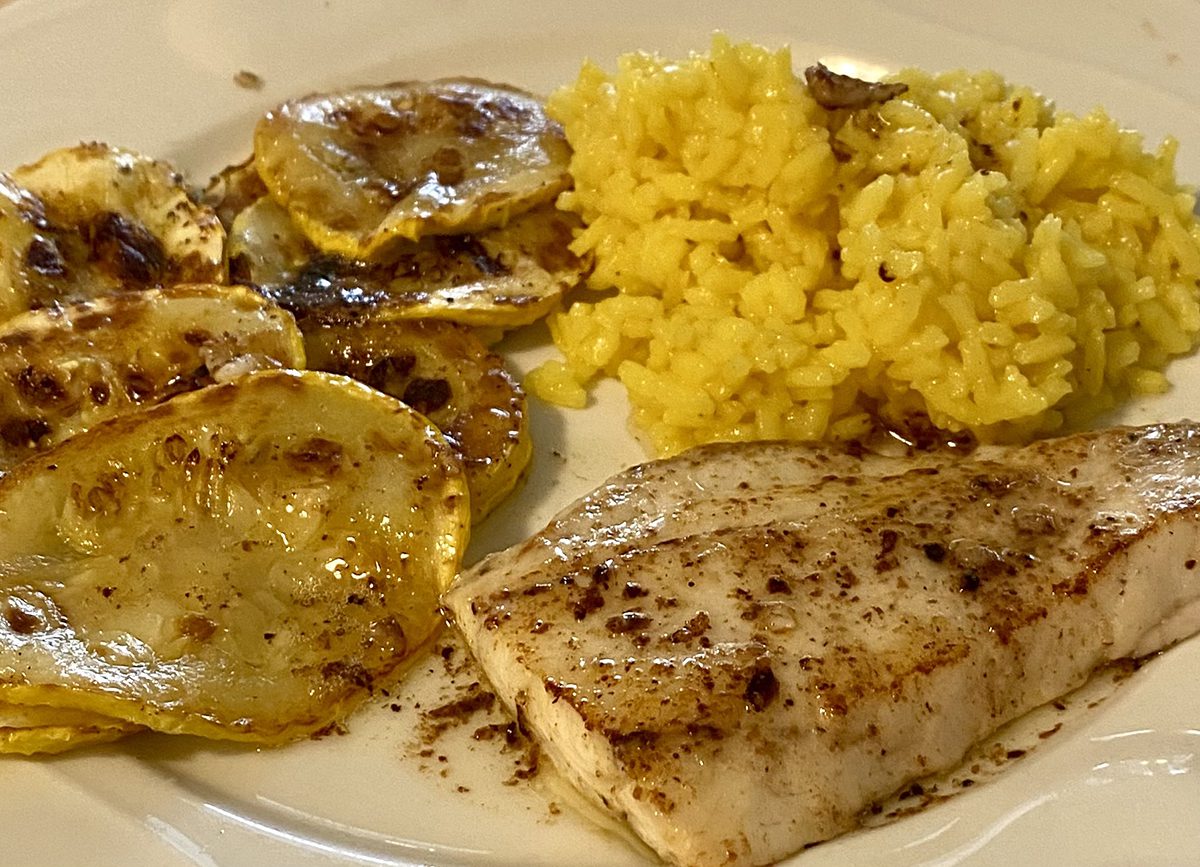Meals value inflation has slowed to its lowest stage this 12 months amid falling costs for staples comparable to oils, fish, and breakfast cereals however specialists warn there are nonetheless ‘darkish clouds on the horizon’.
Figures present meals inflation went all the way down to 13.4 per cent in July, down from 14.6 per cent in June – the third consecutive slowing and its lowest stage since December final 12 months, in line with the British Retail Consortium (BRC)-Nielsen Store Worth Index.
Specialists mentioned the figures have been a trigger for ‘optimism’ however provide chain points might have an effect on prices within the coming months.
Total, store costs have been 7.6 per cent greater in July than a 12 months in the past, slowing from 8.4 per cent in June, and in addition the bottom stage this 12 months.
Costs fell in contrast with June for the primary time in two years.
Meals value inflation has slowed to its lowest stage this 12 months amid falling costs for staples
Figures present meals inflation went all the way down to 13.4 per cent in July, down from 14.6 per cent in June
BRC chief govt Helen Dickinson mentioned: ‘Main the cuts was clothes and footwear, the place retailers mitigated moist climate with bigger reductions.
‘Meals value inflation additionally slowed to its lowest stage this 12 months, with falling costs throughout key staples comparable to oils, fat, fish, and breakfast cereals.
‘These figures give trigger for optimism, however additional provide chain points might add to enter prices for retailers within the months forward.
‘Russia’s withdrawal from the Black Sea Grain Initiative and subsequent focusing on of Ukrainian grain amenities, in addition to rice export restrictions from India, are darkish clouds on the horizon.
‘We count on some international commodity costs to rise once more because of this, and meals costs will probably be slower to fall.’
‘Meals value inflation additionally slowed to its lowest stage this 12 months, with falling costs throughout key staples comparable to oils, fat, fish, and breakfast cereals (inventory picture)
Mike Watkins, head of retailer and enterprise perception at NielsenIQ, mentioned: ‘The summer time vacation interval ought to assist discretionary spend slightly and, while inflation stays excessive, the outlook is enhancing.
‘Consumers proceed to alter how they store as a part of their coping methods. This contains procuring at totally different retailers, shopping for decrease priced objects, delaying spend or solely shopping for when there are promotions.
‘This behaviour seems set to proceed.’
In June figures confirmed grocery value inflation falling – but it surely then remained at 16.5 per cent which was its sixth highest month-to-month stage since 2008, figures revealed.
The speed of development dropped for the 4 weeks to June 11, down from the earlier month’s 17.2 per cent and March’s file 17.5 per cent, in line with analysts Kantar.
Specialists on the time mentioned costs have been rising quickest for merchandise comparable to eggs, cooking sauces and frozen potatoes.
Barbecue meals additionally noticed important value will increase, with contemporary sausage costs up 16 per cent and contemporary burgers 13 per cent costlier.
Kantar additionally discovered the proportion of merchandise bought for £1, the only hottest value for a grocery merchandise, had nearly halved in a 12 months from 9 per cent to five per cent.
Shoppers have been switching to cheaper personal label strains and altering how they eat and cook dinner, Kantar mentioned.

